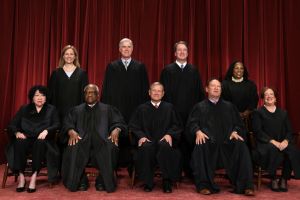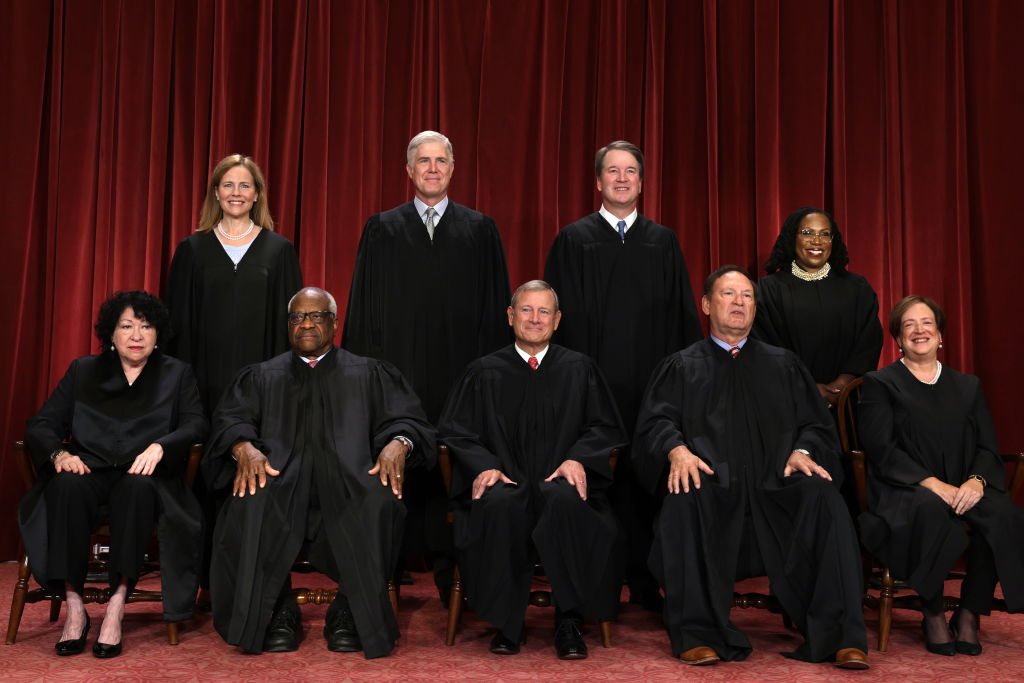L.W., a transgender girl, her parents, and her doctor agreed that it would be good and medically appropriate for her to receive gender-affirming hormone therapy. The state of Tennessee, where L.W. lived, passed a statute in 2023 prohibiting transgender minors from receiving such treatment. Did the statute discriminate against L.W. on the basis of sex? The US Supreme Court said it didn’t.
In 2023, the British government planned to send to Rwanda people who tried to get to the United Kingdom on small boats and then seek asylum. Would that policy violate the asylum seekers’ human rights because the conditions in Rwanda were unsafe? The UK Supreme Court said it did.
Starting after 1945, and accelerating as the 20th century ended, high courts around the world faced questions about whether statutes and executive policies violated constitutional law, human rights, the rule of law, and many other legal doctrines identifying fundamental rights. In the transgender case the US Supreme Court had to decide whether Tennessee’s statute violated a constitutional guarantee of equality; in the Rwanda asylum case the UK Supreme Court had to decide whether the executive policy violated international human rights rules. Polemicists described this as the rise of a “juristocracy”; more neutral observers identified a “global expansion of judicial power.” Polemicists against juristocracy say that courts are taking away our ability to govern ourselves – our ability to choose what we think are the best policies.
Nearly everyone now believes in some concept of human or natural rights – but these controversies arise because fundamental rights don’t define themselves. What is sex equality? What procedures satisfy requirements of basic fairness? How do we bring the idea of free expression to ground when a legislature regulates today’s social media?
Two ways forward present themselves, though how they work out in each nation will depend in large measure upon the specifics of legal doctrine and upon the design details of the nation’s institutions. One possibility is for high courts to come up with what its members believe to be the best available specification of the fundamental rights at issue. They are, after all, lawyers trained to be sensitive to legal doctrine and charged with interpreting and applying fundamental rights in cases as they arise. And that’s what our current system of juristocracy is.
The other possibility is for the high court to defer to the legislature or the executive, who, after all, can claim a democratic warrant for their specification of fundamental rights. Lawyers for the legislature can say, “Our legislators are actually sensitive to the rights-implications of the policies they adopt and the statute that’s before you reflects a reasonable legislative judgment about how important public policies can be pursued without violating fundamental rights.”
No constitutional system is likely to come up with a stable choice between the two possibilities because each has its weaknesses, which mirror each other. High-court judges might not be sufficiently sensitive to the importance of the public policies in question, though they typically deploy some verbal formulations asserting that they do indeed take those policy questions seriously.
Legislators might not be sufficiently sensitive to the rights-implications of their proposals either, though they too typically deploy verbal formulations of their own asserting such sensitivity. Polemicists who admire much of what high courts have done in the years since 1945 say that legislatures too often reflect the passing whims or, even worse, the prejudices of badly informed majorities.
The rise of right-wing populist leaders and semi- or truly authoritarian leaders has deepened a skepticism about legislative attention to issues of fundamental rights that political observers have long held – and properly so. They fear that legislatures today settle on the policies they want without paying attention to rights issues, then ask their lawyers to come up with post hoc legal arguments that there’s nothing wrong with those policies. Yet, the case for deferring to legislatures has always rested on the proposition that they do indeed pay attention to questions about fundamental rights.
The core democratic principles that animate constitutional governments counsel in favor of judicial deference to legislative judgments about whether a specific statute conflicts with some fundamental right properly understood. But only if legislatures actually make such judgments. Critics of judges who decide constitutional controversies according to their own best lights should shift attention from the judges to legislatures and parliamentarians, or at least make the case, more clearly than they have so far, that today’s legislatures do a decent job of thinking seriously about the rights-implications of the policies they enact.


























Leave a Reply